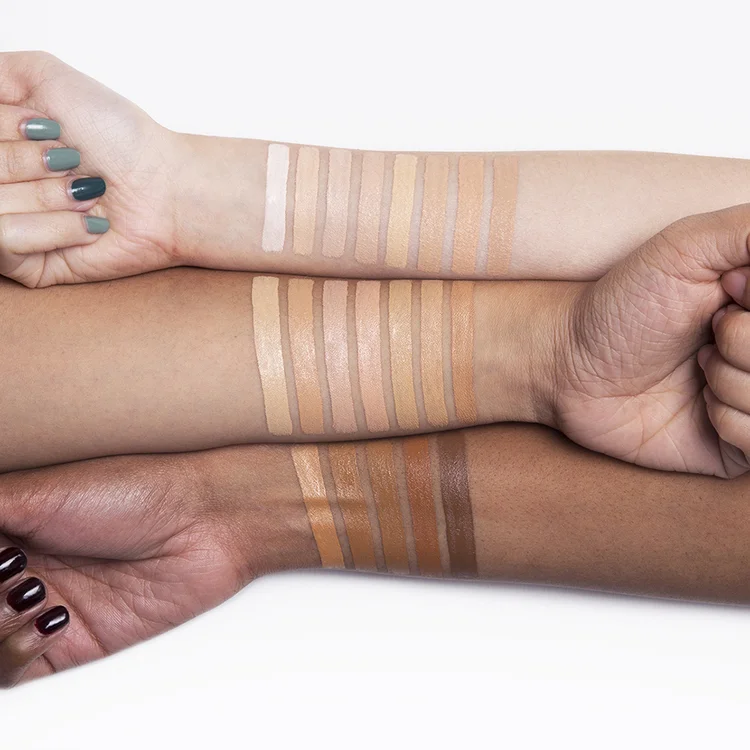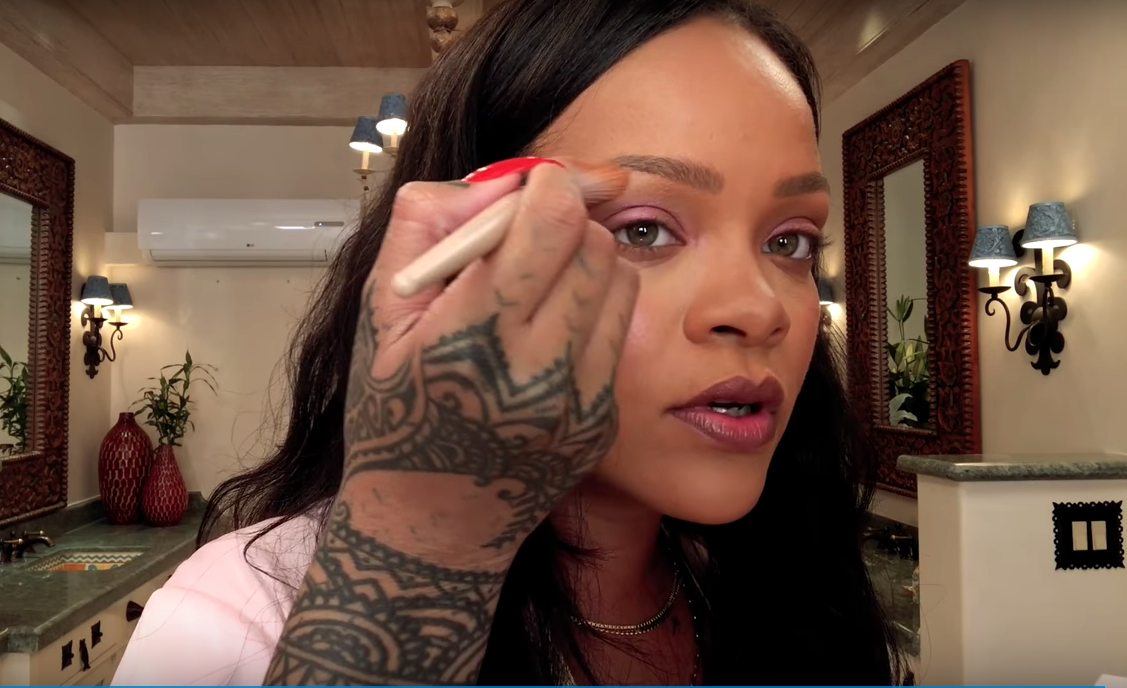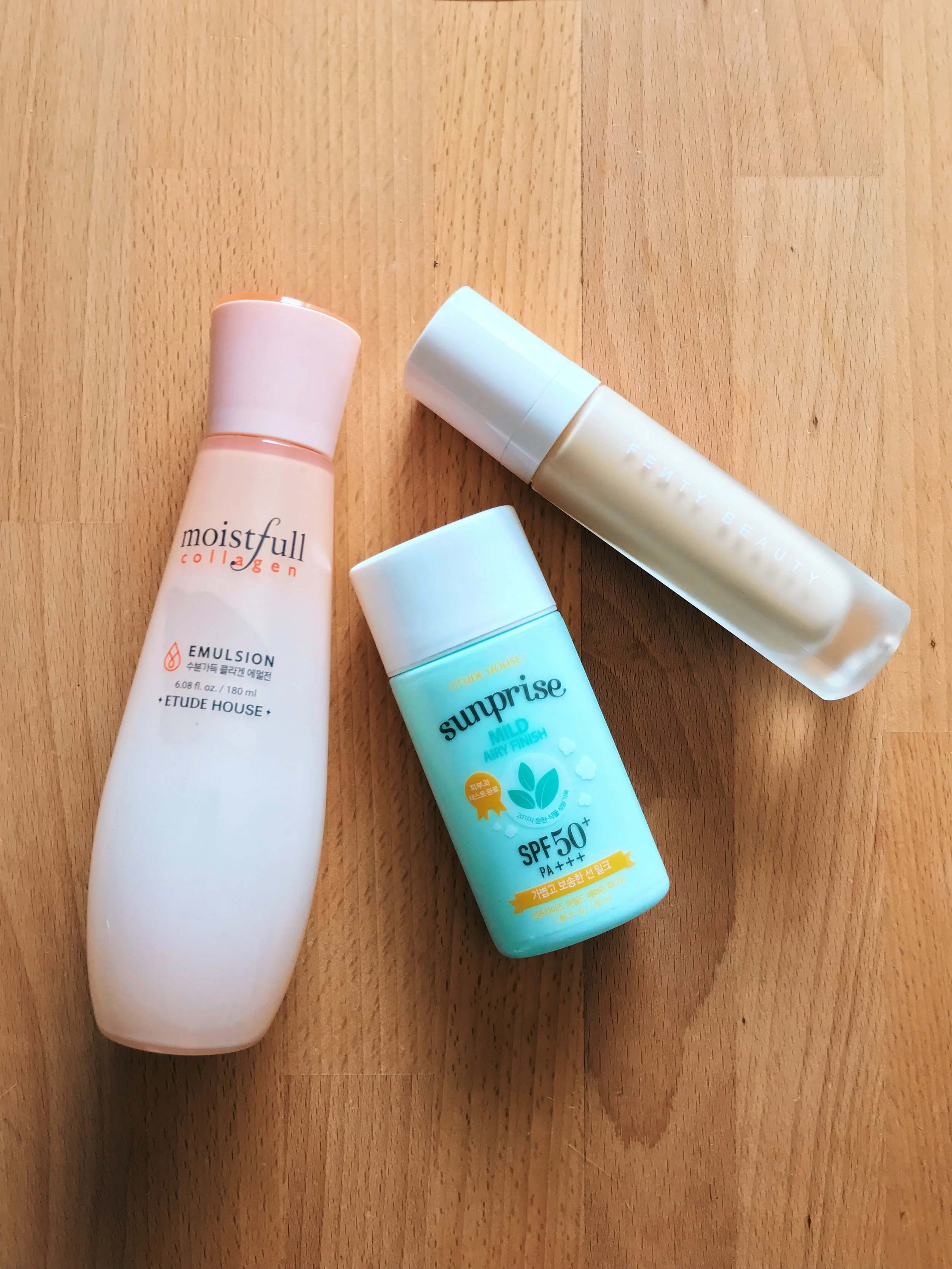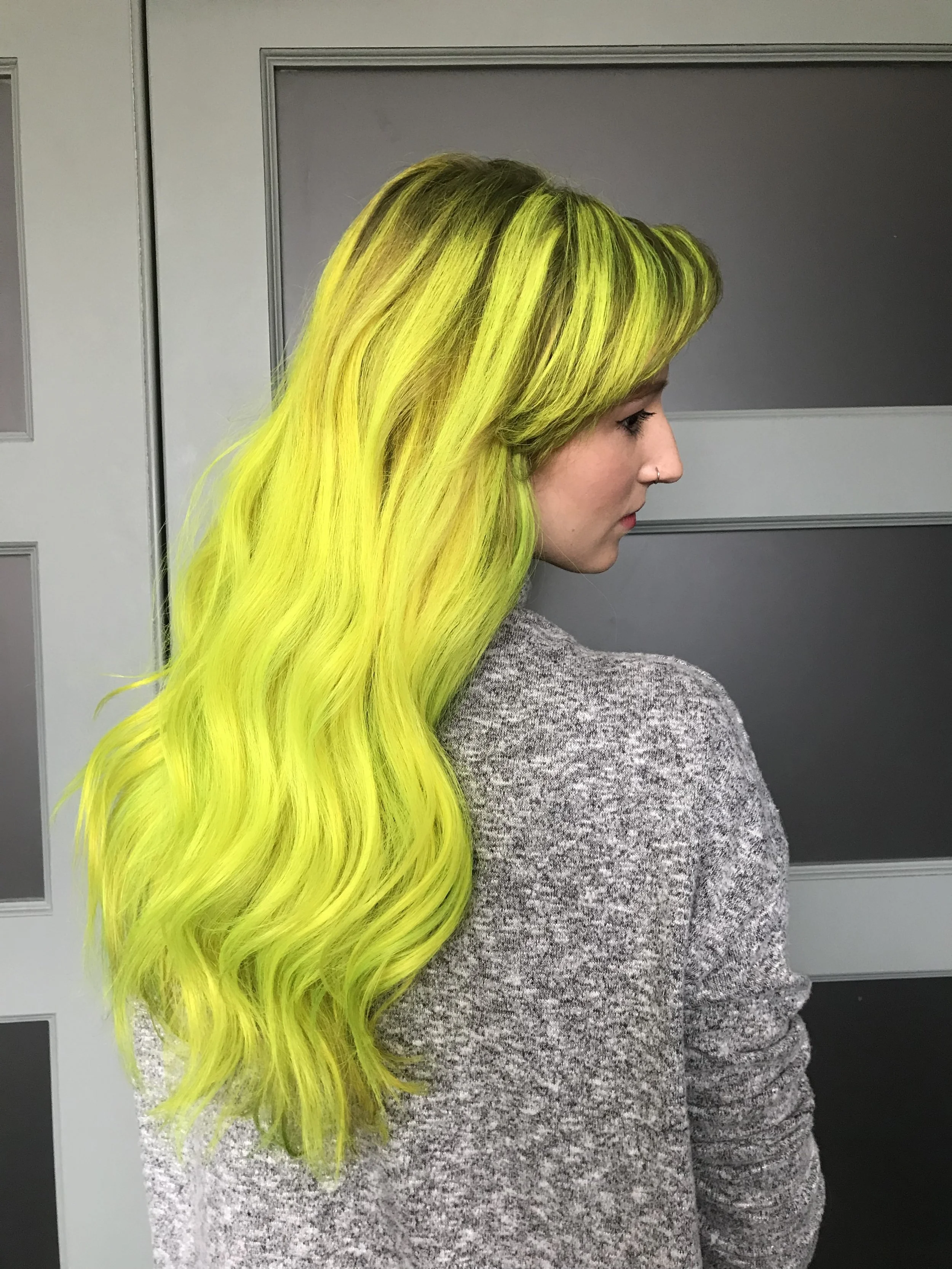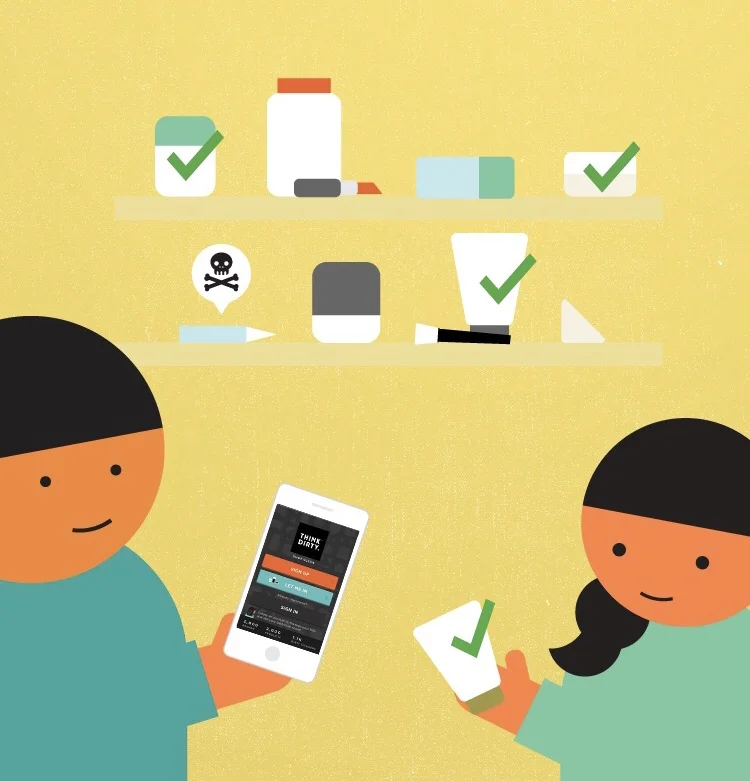Between rolling out of bed 20 minutes late and working late nights, it’s often easiest to grab the first available option and not put too much thought into what we’re consuming. Food is food right? Not exactly. You know the saying “you are what you eat?” Well, not only do we feel the effects internally, but everything we put into our bodies is reflected on the outside, too, in our skin, hair, and nails. Dietary imbalances can increase the production of hormones that can stimulate un-fun things like oil production, inflammation, and acne.
And we can’t forget about the gut. We require proteins, fats, and carbohydrates/fiber daily to maintain vibrant health and beautiful skin. To get the nutritional benefits from what you’re eating, your gut needs to be able to properly break down those nutrients. If your digestion is impaired you’re literally flushing those nutrients down the toilet (like as in uhhhh...pooping them out). Plus, about 80% of your immune system resides in your gut. If you’re gut is out of whack and experiencing chronic inflammation you will see that manifest elsewhere in the body, especially the skin.
So how do we know which food is doing what? Here are some common dietary issues that could be affecting your body and skin.
Disclaimer: We aren’t doctors or certified nutritionists, just nerds that like to feel and look good and do lots of research. This is just the tip of the iceberg and a very basic explanation of diet and skin. If you’re looking for more in-depth info check out this book we love:
Glow: The Nutritional Approach to Naturally Gorgeous Skin by Nadia Neumann.
Too much refined sugar and simple carbs
Refined, simple carbohydrates convert to glucose when over-consumed, which contributes to internal imbalances that undermine skin health. The stress experienced by the body in response to elevated blood sugar levels depletes vitamins B and C, as well as mineral stores which allow the skin cells to generate energy and defend and repair themselves. This can lead to premature aging of the skin, body, and mind. High levels of insulin – which we experience after eating a sugary snack or meal – are super inflammatory and can increase irritation of the skin. Plus sugar actually feeds the bad bacteria naturally found in the gut which can end up overpowering the good gut bacteria. On top of all of that, high levels of insulin can cause increased testosterone levels which can trigger acne, and increase oil gland production. If this sounds like your issue but you can’t give up the sweetness, try natural, unprocessed sweeteners like coconut sugar, raw honey, pure maple syrup, blackstrap molasses, or stevia.
too much Dairy
If you have acne then you’ve probably heard it’s best to avoid dairy. The topic of whether dairy is or isn’t good for you is still up for debate. But we do know that dairy can make acne worse by stimulating hormones that increase sebum production, and that tons of people are intolerant to dairy which means they should steer clear so they can avoid possible skin-irritating inflammation. A general rule of thumb is if you have acne, food intolerance to dairy, or you’re not able to buy quality grass-fed raw or organic dairy products your best bet is to take dairy off the menu. It’s not crucial for good health and there are plenty of other sources of the fat-soluble vitamins. Check out cashew milk if you’re interested in switching to a non-dairy option(the consistency is similar to traditional milk and it tastes legit).
Not enough water
Water is trending, and for a good reason. Around 65% of our skin and 55% of our bodies are made of water. It’s important for our body’s natural healing processes, flushing toxins, and transporting nutrients within cells. The amount of water we drink greatly influences skin hydration. Truthfully most of us don’t drink as much water as our bodies need, especially if we’re also consuming things like coffee, tea, juice, or soda. If you’re feeling tired of plain old water, throw a lemon or some sliced fruit in there and make it interesting.
Nutrient rich greens have vitamins and antioxidants that make a huge impact on your skin!
Photo by Lou Liebau on Unsplash
Not enough greens/vegetables
Dark leafy greens are the healthiest greens around, which probably accounts for their recent popularity (what up, green juice!). They’re important to incorporate into your daily diet since they’re packed with skin and hair protecting antioxidants as well as fiber, folic acid, vitamin C, potassium, and magnesium. The most nutrient-rich greens are cabbage, kale, dandelion greens, romaine lettuce, spinach, mustard greens, turnip greens, collard greens, and swiss chard. If you’re not super into these cruciferous flavors, grab a bag of them in the frozen aisle and try blending them into a smoothie.
Not enough protein
Our bodies make 11 of the 20 amino acids that are essential to life. That’s pretty cool, but you’ll still need to incorporate the remaining 9 amino acids into your meals through “complete proteins.” If you’re looking for some extra glow, this is the way to get it. Some of these complete proteins can be found in grass-fed beef, pasture-raised poultry/eggs, wild-caught fish, buckwheat, quinoa, and chia seeds. Grass-fed and pasture-raised animal products contain greater amounts of anti-inflammatory omega-3 fatty acids, as well as glow-worthy vitamins A, C, E, B12, D, and K2.
Too much processed food
If you find yourself shopping mostly the middle aisles of the grocery store, chances are you’re eating too many processed foods. Around 70% of the modern diet is composed of processed foods. They are loaded with inferior macronutrients like cheap “vegetable” oils and refined, simple carbohydrates (corn, sugar, wheat). Plus they generally contain artificial colors, preservatives, and flavorings – some of which have been banned in other countries.That’s setting your gut up to fail! Here’s a tip we like: if you can’t pronounce the name of an ingredient in something you’re about to eat, chances are you probably shouldn’t eat it. Make your way to those outer aisles of the grocery store and load up on the veggies and organic meats.
Not enough variety
Vegetables are healthy, but if you just eat the same vegetables all the time you’ll end up lacking macronutrients fat and protein, as well as countless micronutrients. Even if you’re veg, it’s important to look at the variety of foods you are or are not consuming. Are you getting those healthy fats, fibers, and proteins in every meal? Remember to “eat the rainbow” – Skittles! Jk, we mean assortment of different foods.
Not enough quality protein
The quality of your favorite proteins are actually pretty important to how you look and feel. During digestion, proteins are broken down into amino acids, which are used to build and repair cells, including the ones that make up our skin. Without adequate protein, our skin cells can’t regenerate properly, which inhibits healing and leads to wrinkling. If you’re concerned with crazy antibiotics and hormones making their way onto your plate (and rightly so), getting your meat, dairy, and eggs from animals allowed to roam on pastures and eat their natural diet will guarantee you more healthy, nutrient-rich proteins.
Too much gluten
Gluten allergy is definitely a real thing that tons of people have. And although avoiding gluten has become a bit of a fad, the general consensus from numerous studies and an overwhelming amount of anecdotal evidence suggest that it is unhealthy even for people without an allergy or intolerance. Too much gluten can actually damage the gut lining, cause chronic inflammation and increase the permeability of the intestines (hello “leaky gut” syndrome). If you’re interested in cutting gluten from your diet, it’s actually easier than it sounds. Most gluten-containing foods are processed (think cereal, pasta, bread, etc), so eating whole, fresh foods is a great place to start. If you generally feel sluggish, bloated, or have indigestion, cutting gluten out of your diet may be beneficial for both your body and your skin.
Getting the wrong kind of fats
Remember when everyone was avoiding fat like it was the plague? Well guess what, it’s actually a pretty vital nutrient that helps the bodies healing process, keeps the skin moisturized, and is necessary for the absorption for the fat soluble vitamins A, D, E, and K (which are all vital for skin health). There are still unhealthy fats that are more synthetically produced products like trans fats, “vegetable” oils like canola, sunflower, safflower, soybean, corn, cottonseed oils, nonorganic dairy products, and hydrogenated oils. Healthy fats are: Saturated fats – coconuts/coconut oil, grass-fed meat, full-fat/grass-fed raw/or organic dairy, pasture-raised eggs. Monounsaturated fats – avocados/avocado oil, olives/olive oil, almonds, hazelnuts, macadamia nuts. And Polyunsaturated fats – wild-caught fish, walnuts, wheat germ, flaxseeds, hemp seeds, pumpkin seeds. Tasty!
Confused about what to change first? We get it. All this knowledge is well and good, but it can be tough to implement or know where to start. Neumann recommends a food and skin diary to help you make some connections. For a week, keep track of what you eat, how you’re feeling, and the state of your skin throughout the day. You might be surprised what you discover!
cover photo by Noah Buscher on Unsplash




